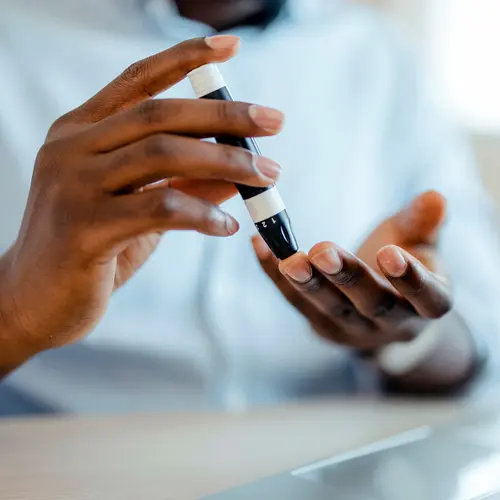When it comes to diabetes, the more you know, the better. You’re probably aware that it’s important to stay on top of your blood sugar and A1c levels. But tracking other parts of your health -- your diet, amount of exercise, weight, and changes in your heart rate -- can help you lower your risk of diabetes complications like heart disease. That’s crucial, since diabetes makes you more likely to have heart problems.
There’s an app or gadget for nearly everything these days. But experts say a notebook or regular pen and paper work just as well, so it’s up to you whether you use fitness trackers, phone apps, or other tech tools. No matter what you choose, here are several things to consider tracking.
Exercise
Exercise is a must if you have diabetes. It keeps your heart fit and helps your body use glucose more efficiently, which cuts the risk of some diabetes-related complications. You should get 30 minutes of exercise on most days of the week.
There are dozens of different watches and phone-based apps that will track your daily activity for you. In addition to logging your workouts, many will count your total steps or movement throughout the day.
The jury’s out on whether these tech tools encourage you to exercise more than if you weren’t using them. But some experts say there are other reasons to track your exercise. It lets you keep tabs on how you’re feeling during and after workouts and if you have blood sugar swings or signs of low blood sugar (like shakiness and blurred vision). People with diabetes have different reactions to exercise, and even to different types of workouts. Monitoring your fitness routine can help you work with your doctor to make sure you’re able to safely adjust your medication and meals, and regulate your blood sugar healthfully.
What You Eat
Your doctor may have talked to you about counting your carbohydrates, especially if you take insulin -- it’s key for making sure you take the right amount of the medicine. It can help you manage your diabetes by showing you how the food you’re choosing affects your blood sugar. To guard against heart disease, it’s a good idea to also track your sodium, cholesterol, and saturated and trans fats.
The right amount of daily carbs is different for everyone, so ask your doctor what you should aim for. Ideally, most adults should get no more than 1,500 milligrams of sodium a day. And limiting saturated and trans fats can help keep you from getting too much cholesterol. You’ll need to check food labels and use a guide for unlabeled foods (your doctor’s office should be able to give you one) in order to figure out the carbs, salt, and fat in each serving of food you eat.
You may want to try keeping a food log that lists everything you eat each day. According to recent research, people who recorded their daily food intake were able to lose more weight than those who didn’t. That’s important: Reaching and maintaining a healthy weight is better for your heart and for managing your diabetes.
Weight and Waist Size
Being overweight or obese can make your diabetes symptoms worse, and it adds to your risk of heart problems. You probably step on the scale each time you see your doctor, but tracking your weight can be helpful between doctor’s visits. If your weight rises beyond 1 to 2 pounds in a week, it may be time to rethink what you’re eating and how much exercise you’re getting.
Not a fan of the scale? Measuring your waist size is another way to know if the amount of body fat you have is putting you at risk for health problems. A healthy waistline for most women is less than 35 inches; for men, it’s less than 40. Talk to your doctor about safe ways to slim down.
Blood Sugar
You should be checking your blood sugar regularly, especially if you use insulin. Unless your doctor says otherwise, in general levels should be between 80 and 130 mg/dL before meals and less than 180 mg/dL 2 hours after you have a meal. It’s also helpful to check it before and after you exercise to see how your workouts are affecting your levels and to avoid dangerous blood sugar swings.
Why does it matter? Blood sugar that’s too high can, over time, lead to inflammation, weight gain, and high cholesterol and triglycerides – all of which can harm your heart.
It’s smart to keep a record of your results after you test. Some glucose monitors will record your levels for you, but you can also use a notebook or phone app to jot down your numbers. Once you have that information, share it with your doctor at your next visit to help them gauge how well you’re managing your diabetes.
Resting Heart Rate
Tracking your resting heart rate (RHR) is simple and something you can do on your own daily or weekly. Use two fingers to find your pulse on the inside of your wrist. Count the number of times it beats for 15 seconds, then multiply that by 4 to get your RHR. A healthy resting heart rate is between 60 and 100 beats per minute (though keep in mind that stress, medication, and even hormones can impact it). A healthy resting heart rate is linked to lower odds of heart disease and early death.
There are special trackers that can help you measure heart rate variability. That’s a measure of how quickly your pulse can change from beat to beat. The greater the variability, the better your heart can handle stress, a sign that your heart is fit and resilient.

